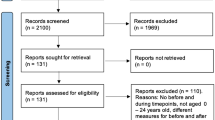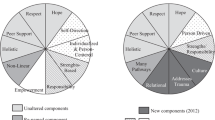Abstract
We describe the self-reported socioeconomic and health impacts, as well as the coping mechanisms employed by a drug-using cohort of adults during the Flint water crisis (FWC) in Flint, Michigan. Participants from an ongoing longitudinal Emergency Department study were contacted between April 2016 and July 2016 and completed a survey focusing on exposure, consequences, and coping strategies. One hundred thirty-three participants (mean age = 26, 65% African-American, 61% public assistance) completed the survey (37.9% response rate). Of these, 75% reported exposure to water with elevated lead levels. Of these, 75% reported additional monthly expenses resulting from exposure. Almost 40% of parents reported changes in their children’s health and 65% reported changes to their health since the FWC. Participants indicated the use of both positive (e.g., advice from trusted neighbors, 99.0%) and negative coping mechanisms (e.g., increased substance use, 20.0%) in response to this public health emergency. High-risk Flint residents reported multiple social, economic, and health-related consequences stemming from the FWC. Policymakers should consider additional resources for those affected, including increased access to mental health to aid recovery within the community.
Similar content being viewed by others
References
Kuehn B. Pediatrician sees long road ahead for Flint after lead poisoning crisis. JAMA. 2016;315(10):967. doi:10.1001/jama.2016.1034.
Kennedy C, Yard E, Dignam T, et al. Blood lead levels among children aged <6 years—Flint, Michigan, 2013–2016. MMWR Morb Mortal Wkly Rep. 2016;65. doi:10.15585/mmwr.mm6525e1.
Centers for Disease Control and Prevention. CDC investigation: blood lead levels higher after switch to Flint River water. 2016. Accessed: https://www.cdc.gov/media/releases/2016/p0624-water-lead.html.
Cuthbertson C, Newkirk C, Ilardo J, Loveridge S, Skidmore M. Angry, scared, and unsure: mental health consequences of contaminated water in Flint, Michigan. Journal of Urban Health. 2016; doi:10.1007/s11524-016-0089-y.
Cunningham R, Carter P, Ranney M, et al. Violent reinjury and mortality among youth seeking emergency department care for assault-related injury. JAMA Pediatr. 2015;169(1):63. doi:10.1001/jamapediatrics.2014.1900.
Bohnert KM, Walton MA, Ranney M, Bonar EE, Blow FC, Zimmerman MA, Booth BM, Cunningham RM. Understanding the service needs of assault-injured, drug-using youth presenting for care in an urban emergency department. Addict Behav. 2015;41:97–105.
Carver C. You want to measure coping but your protocol’ too long: consider the brief cope. International Journal of Behavioral Medicine. 1997;4(1):92–100. doi:10.1207/s15327558ijbm0401_6.
Rosner D. Flint, Michigan: a century of environmental injustice. Am J Public Health. 2016;106(2):200–1. doi:10.2105/ajph.2015.303011.
Focus on the long haul in Flint. http://wwwusnewscom/. 2016. Available at: http://www.usnews.com/opinion/articles/2016-03-09/to-recover-flint-must-solve-more-than-its-lead-water-crisis. Accessed November 1, 2016.
Acknowledgements
The authors wish to acknowledge project staff, including Kaneesha Wallace, MBA, Linping Duan, MS, and Sonia Kamat, for their assistance in data and manuscript preparation. Finally, special thanks are owed to the patients and medical staff of the Hurley Medical Center (HMC) for their support of this project.
Author information
Authors and Affiliations
Corresponding author
Ethics declarations
Funding/Support
Dr. Heard-Garris is funded by the Robert Wood Johnson Foundation Clinical Scholars Program. The funders had no role in design and conduct of the study; collection, management, analysis, or interpretation of the data; preparation, review, or approval ofthe manuscript; or decision to submit the manuscript for publication.
Rights and permissions
About this article
Cite this article
Heard-Garris, N.J., Roche, J., Carter, P. et al. Voices from Flint: Community Perceptions of the Flint Water Crisis. J Urban Health 94, 776–779 (2017). https://doi.org/10.1007/s11524-017-0152-3
Published:
Issue Date:
DOI: https://doi.org/10.1007/s11524-017-0152-3




